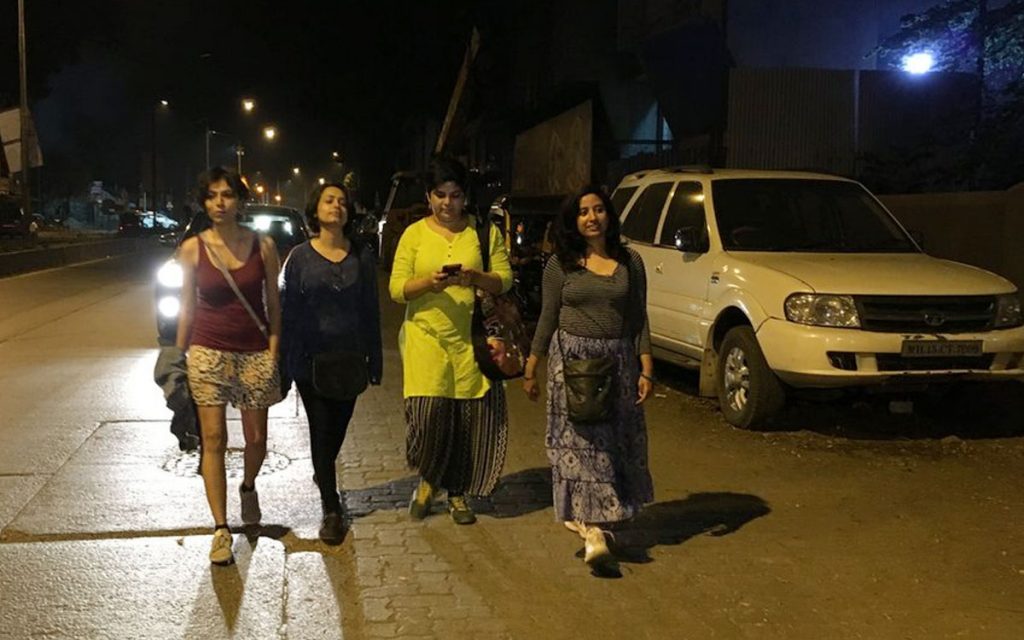
The paper weaves an intricate pattern of relations between space, time and movement of female bodies in the city of New Delhi from a gendered perspective.
Authors
Gargi Bharadwaj, Assistant Professor, Jindal School of Liberal Arts & Humanities, O.P. Jindal Global University, Sonipat, Haryana, India.
Upasana Mahanta, Associate Professor, Jindal Global Law School, O.P. Jindal Global University, Sonipat, Haryana, India.
Summary
Our paper lays out an experiential account of walking the city, an otherwise mundane everyday act, as a performative action. The specific act of walking that this paper examines is part of a series of performance actions titled ‘Women Walk at Midnight’ (Delhi, 2016- present) where women collectively walk the streets of the city at night.
Breaking from the conventional article format, our paper draws on reflexive feminist research and performance analysis to narrate the performative dimensions of walking that foreground how women collectively negotiate fear and vulnerability in/of the city.
We draw on our own memories and experiences of walking – embodied, sensorial, even intuitive – not only as participants of the Midnight Walk but as women who often negotiate varied agressions of the city streets. The paper weaves an intricate pattern of relations between space, time and movement of female bodies in the city of New Delhi from a gendered perspective.
We posit that transformations of urban atmosphere through the course of the day shape our experiences of the city, reproducing it as a gendered site. Relation of bodies to space, we argue, shifts in response to time.
We are interested not only in the singular and deliberate actions carried out by individual walkers, but unpack the shared notions of risk, adventure and pleasure, experienced fleetingly and afforded only through the collective.
These performative actions of female bodies at night not only challenge the rehearsed understandings of urban citizenship but also stage its emancipatory possibilities.
Published in: Gender, Place & Culture, A Journal of Feminist Geography.
To read the full article, please click here


